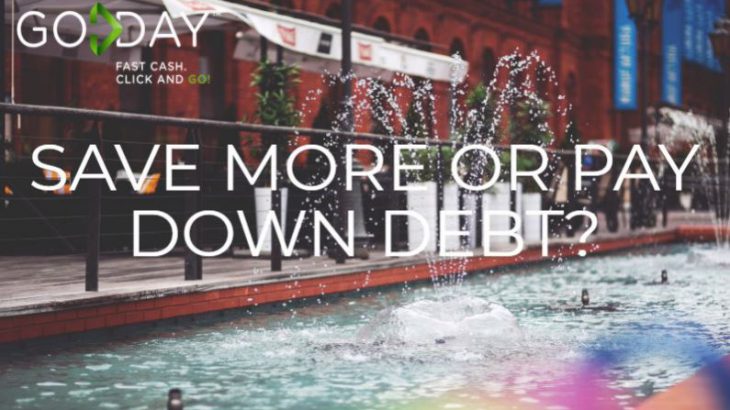
When it comes to finances, everyone is different. And that includes things like how you save and spend your money. One of the ongoing conversations and questions we hear about is what is more fiscally responsible, trying to save more or paying off debt?
Well, the answer is different for everyone depending on their financial means and lifestyle. There are also other factors involved such as the kind of debt and your savings game plan. We break down a few of the scenarios of both saving and trying to pay off debt. You would think that the obvious answer is to immediately pay off debt because if the interest you’re paying on your debt is higher than the interest you’re earning through savings, you’re losing money.
The kind of debt you have matters.
There is debt like mortgages and student loans, but there is also debt like credit card bills and yes, payday or short-term loans. What’s the difference between these kinds of debt? The interest rates tied to them. Things like credit cards and payday/short-term loans have much higher interest rates, where mortgage rates and student loans have much lower interest rates in comparison.
Make money while still paying down debt they say. How is this possible? Put your funds into a savings account that’s going to make money for you while paying off debt at the same time. We completely understand the immediacy of needing cash, which is what your savings are for. Life happens, which is why people have emergency funds and savings. If you’re putting all your money into paying off debt, you may get put in a situation where you won’t have that cash as easily accessible. There’s no reason why you can’t pull from that savings account to put towards your debt when you feel like you have a good enough financial cushion if something were to happen. For example, by paying off debt and not having emergency savings to fall back on, you could be setting yourself up to take on more debt when unexpected expenses come up.
When it comes to paying down debt versus saving, whether it is for retirement, a trip, schooling, etc. the best thing to do to reach your financial goals is to make sure you have the whole picture and focus on your finances and where you want them to be in the future compared to focusing on the short term.
While paying down debt as quickly as possible may be your initial thought process, remember it can also affect your savings and financial situation long term. A clear budget and financial plan can help you reach your money goals and can help keep you on track.



